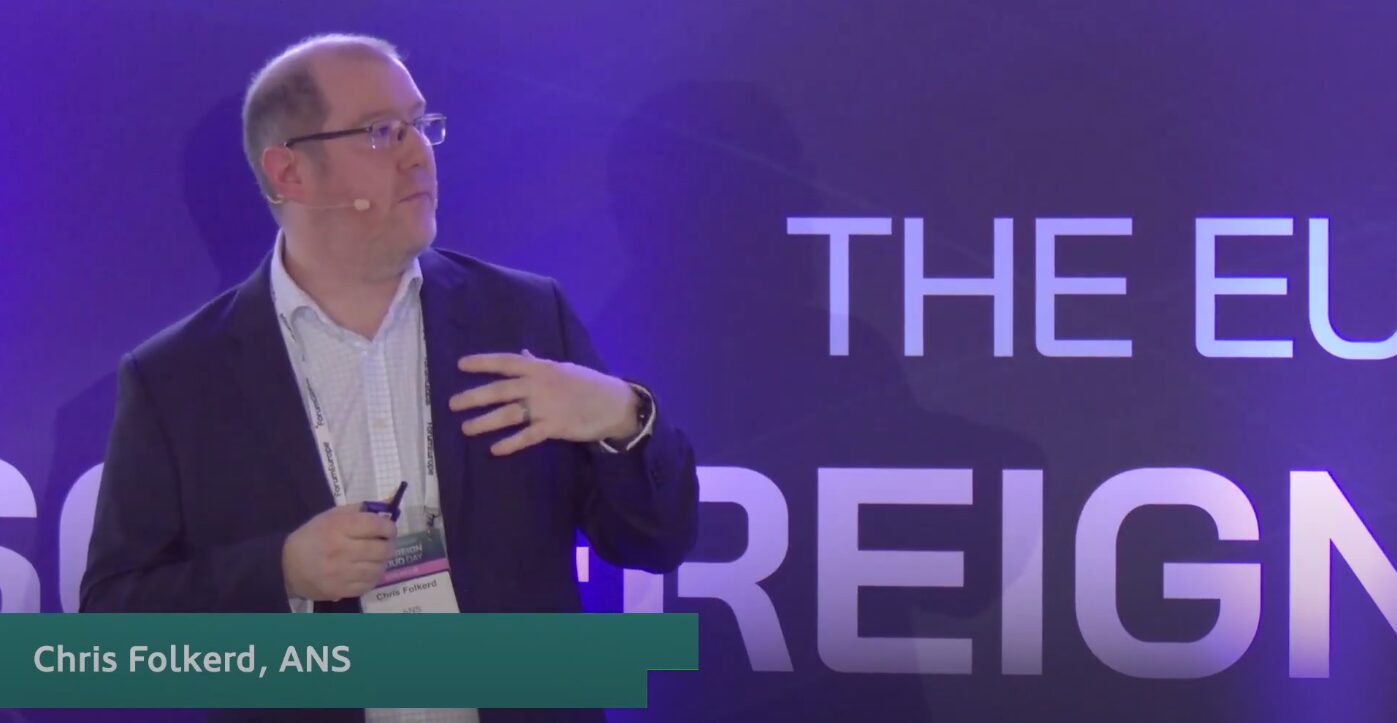In today’s volatile geopolitical climate, where cyber threats are increasingly sophisticated and innovation moves quickly, national infrastructure security is not optional—it’s essential.
For public sector organisations such as defence, healthcare, policing, and government, “Zero Trust” is no longer a theoretical model. It’s a non-negotiable.
At ANS, we believe that Zero Trust—the principle of “never trust, always verify”—must be embedded at every layer of critical infrastructure. When combined with our Sovereign Cloud model, it significantly enhances security and compliance.
Sovereign Cloud: built for the public sector.
As Chris Folkerd, Director of Platform at ANS, outlined in his recent talk at ForumEurope, the journey to secure cloud adoption is complex and deeply contextual.

From legacy on-premises systems to hybrid and multi-cloud environments, public sector organisations are navigating a transformation that demands both agility and control.
ANS’s Sovereign Cloud is purpose-built for this challenge. It provides:
- UK-based infrastructure with access to core government networks
- SC and DV-cleared personnel managing sensitive workloads
- Compliance with GDPR, UK data protection laws, and sector-specific regulations
- Support for secret data classifications
Whether supporting NHS systems, police forces, or central government, our Sovereign Cloud ensures that data sovereignty, security, and service resilience are never compromised.
Zero Trust: No one is above verification.
Zero Trust assumes that breaches are inevitable. It requires continuous verification of users, devices, and applications—no matter where they are located.
At ANS, this philosophy underpins our entire security model:
- Defence in depth: Layered security controls across infrastructure, applications, and endpoints
- Managed SOC and threat detection: Real-time monitoring and response
- Granular access control: Only vetted, UK-based personnel can access sensitive systems
This approach is especially critical in sectors like healthcare and defence, where the integrity and confidentiality of data are paramount.
But how do we manage to stay within regulatory boundaries?
Innovation vs. regulation: the eternal struggle.
One of the most pressing challenges facing public sector organisations is the tension between innovation and regulatory control. Technologies like AI and SaaS offer unprecedented capabilities—but they also introduce new risks, especially when hosted on hyperscaler platforms subject to foreign legislation like the US CLOUD Act.
Chris highlighted how ANS helps customers navigate this complexity by offering:
- Flexible deployment models (Azure-native, VMware-based, or a hybrid of the two)
- Lifecycle support from migration to long-term cloud maturity
- Expertise in regulatory alignment, including GDPR, AI governance, and cross-border data sharing
In a post-Brexit world with complex geopolitical influences, it can be difficult to meet the legal requirements demanded by multiple nations. For the most sensitive information, this is where local sovereign cloud solutions often come into play.
The future of Sovereign Cloud
Looking ahead, initiatives like Gaia-X and the UK Data Hub are shaping a future where cloud services are federated, interoperable, and compliant by design.
While the UK currently sits outside the EU’s Gaia-X framework, efforts are underway to bridge that gap and ensure UK organisations can participate in a secure, collaborative digital ecosystem.
Zero Trust is not a buzzword—it’s a baseline. In critical infrastructure, where the cost of failure is measured in national security and public trust, it’s a non-negotiable.
With ANS’s Sovereign Cloud and Zero Trust model, public sector organisations can innovate with confidence, knowing their data is secure, compliant, and under their control.





